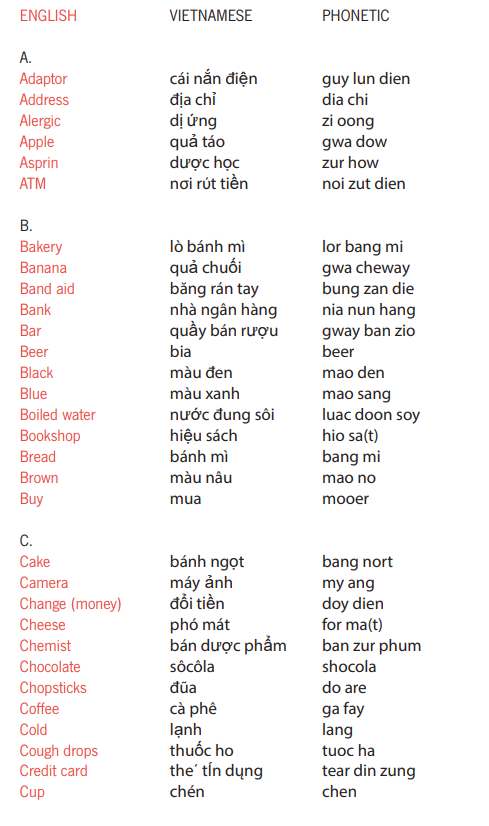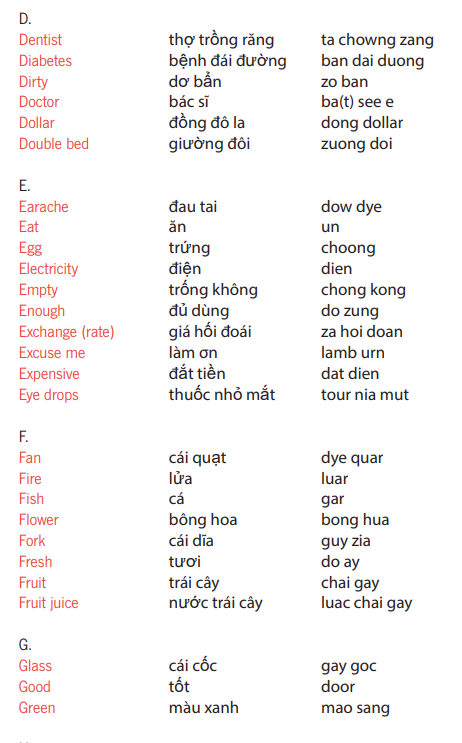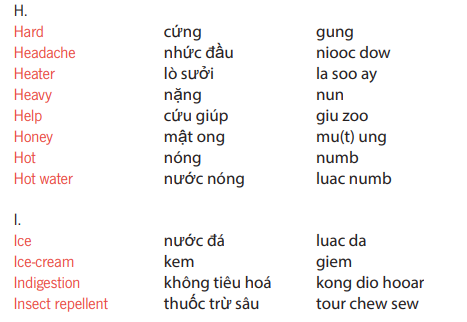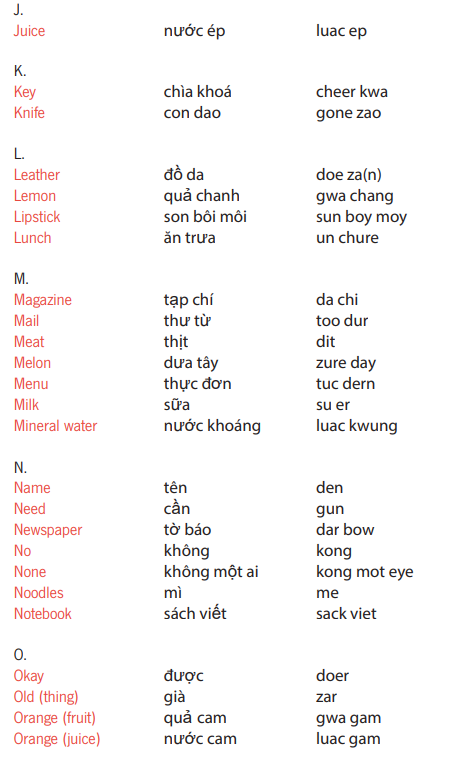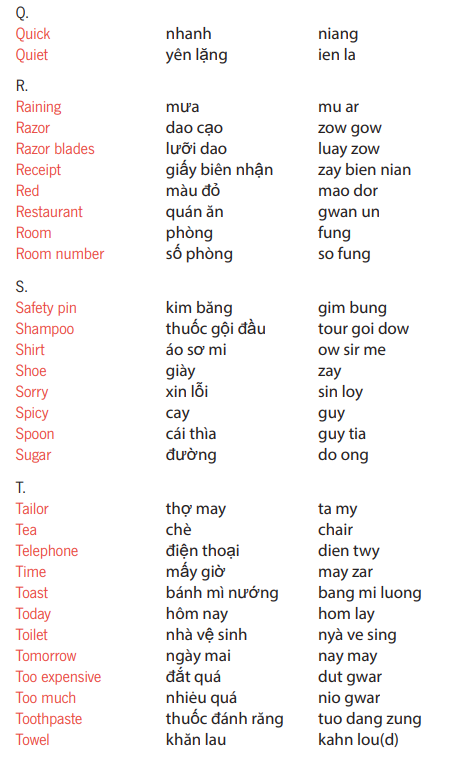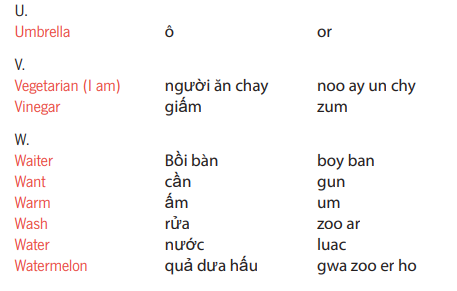Vietnamese Phrasebook
Vietnamese has been spoken by the inhabitants within the current day borders of Vietnam for millennia and today it is the national and official language of the country. It is the mother tongue of 86% of the inhabitants of Vietnam and is a second language spoken by the many
small ethnic minorities within the country.
The ancestor of the Vietnamese language was originally based in the area of the Red River, in what is now northern Vietnam, and during the subsequent expansion of the Vietnamese language and people into what is now central and southern Vietnam.
It appears that the language has been heavily influenced by its location in the Southeast Asian region and much of the vocabulary has been borrowed from Chinese, especially words that denote abstract ideas, in the same way European languages borrow from Latin and Greek. Although it was formerly written using the Chinese writing system, the writing system in use today is an adapted version of the Latin alphabet.
Through extensive contact with western countries over many hundreds of years, other languages have been in common usage within Vietnam and today English is widely spoken throughout the country.
With the use of English being commonplace you should have no difficulty in finding your way or visiting restaurants and shops during your visit to Vietnam. However, there may be occasions, especially in small towns, rural areas and in the many local markets, when you may find the ability to communicate in Vietnamese to be helpful and also a great way to make friends with the warm and hospitable Vietnamese people.
To assist you in this we have prepared this brief phrase book, containing some phrases that you are most likely to need as well as a small dictionary of additional words that you may find useful from time to time. We have added space at the back of this book for you to write down any other words you may need; ask your National Escort or Local Guide for a word and then write it down and you are set to go.
For each word or phrase we have given the English followed by the Vietnamese and then a phonetic version that should make it easier for you to pronounce.
First though you need to know about the tones. Vietnamese is a tonal language with 6 tones. These tones are marked as follows:
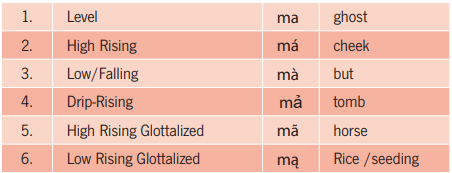
Something else to help you is the Vietnamese alphabet, try these pronunciation exercises:
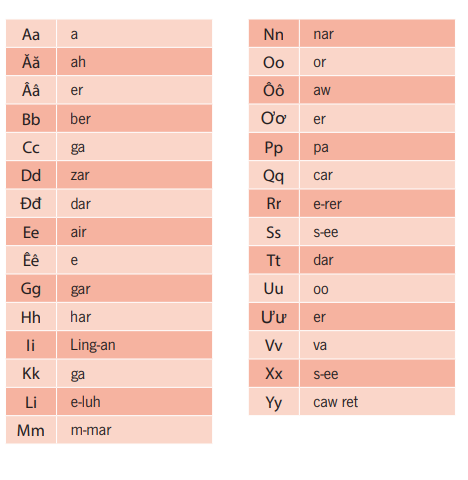
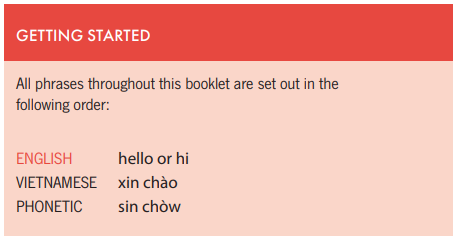
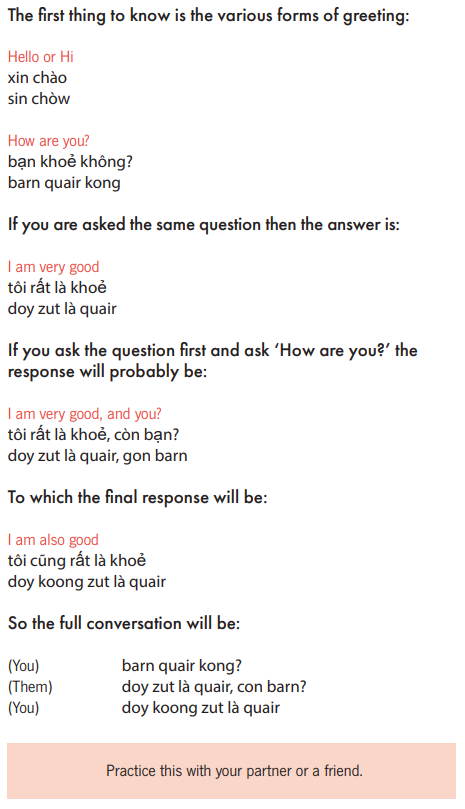
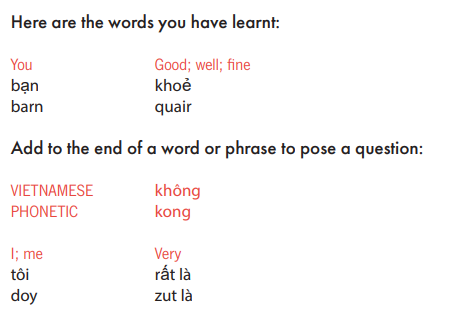

Now you have learnt how to greet someone you may like to learn something about them, their name or where they are from or what they do for a living.



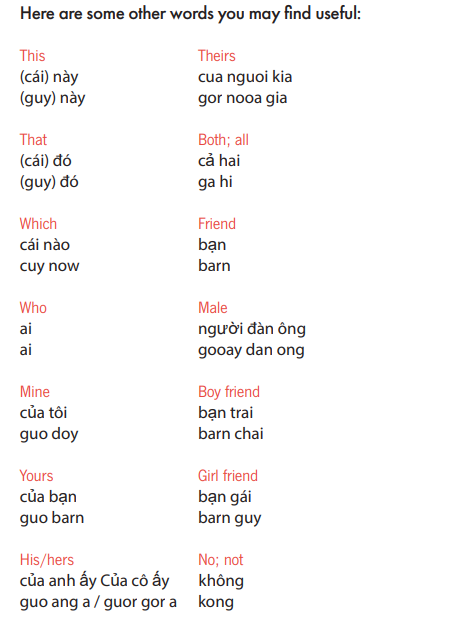
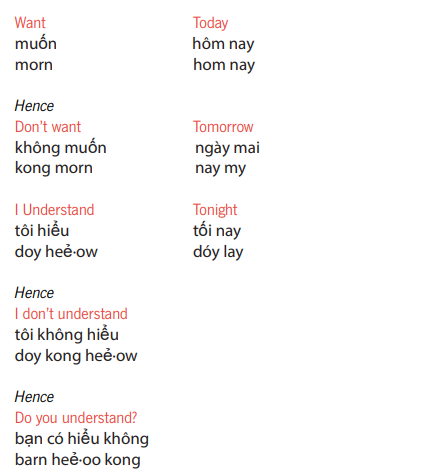

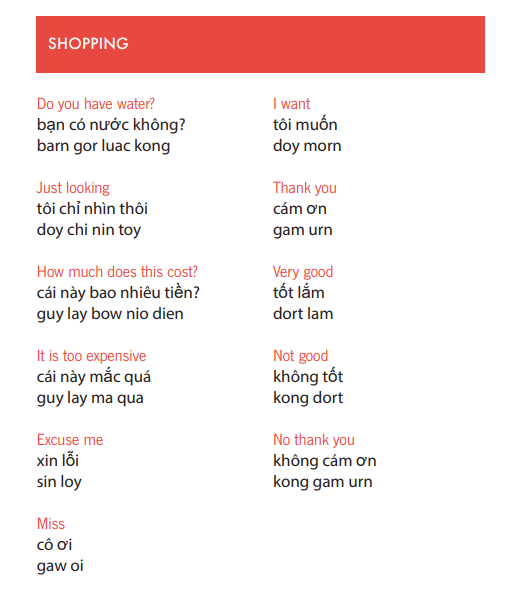
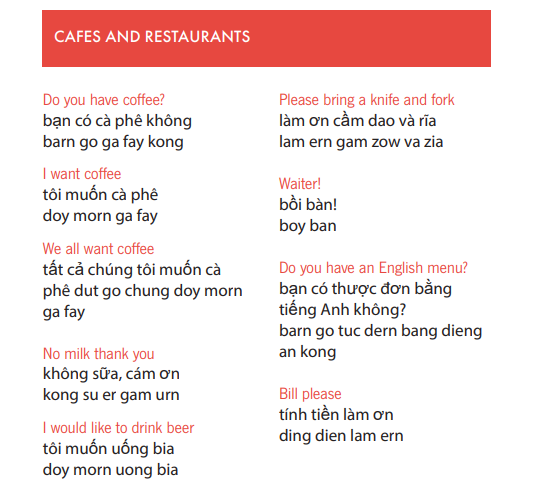
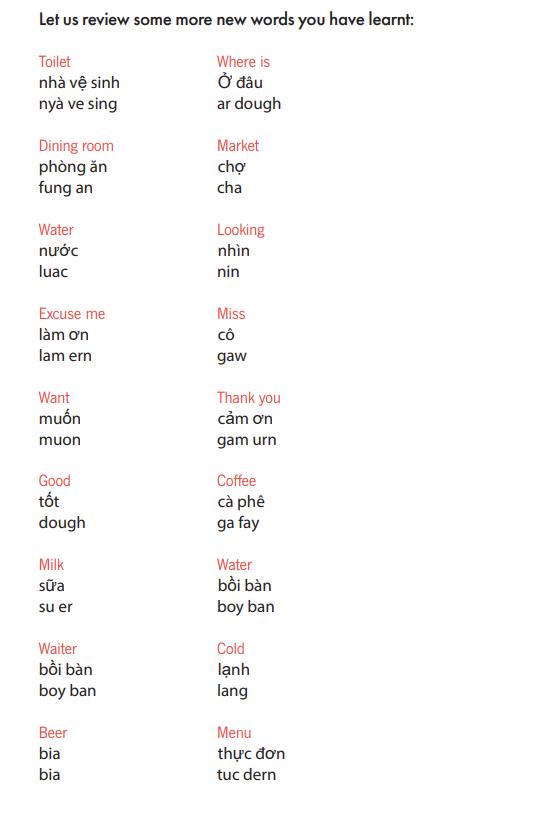
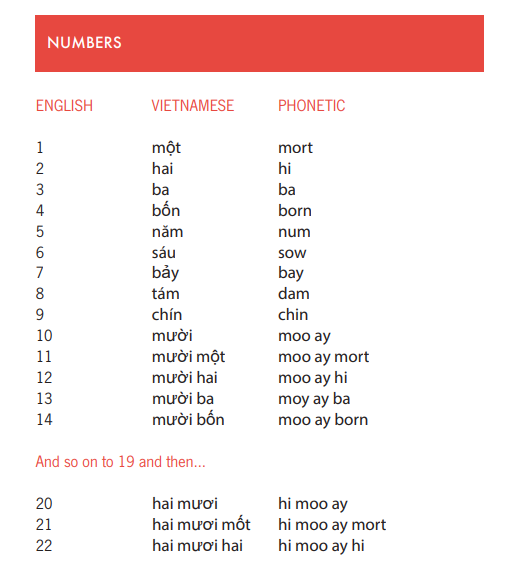
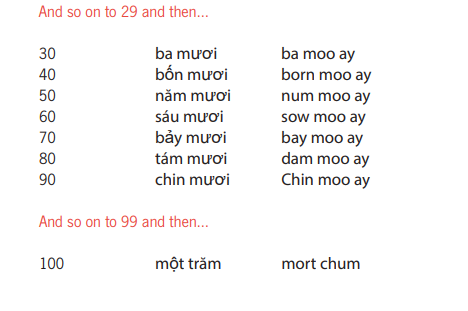
Dictionary
You may find this dictionary useful when practising your Vietnamese skills, or when you are out shopping. If there are any specific words you want to know that are not shown here or in the general phrasebook, simply ask your National Escort or Local Guide to write them down for you in the space provided at the end of this section.
